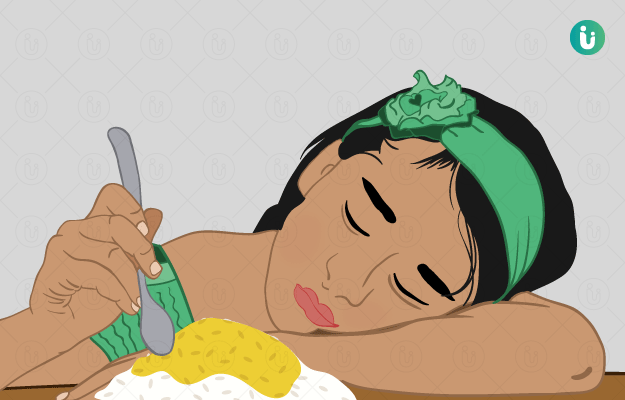What is a loss of appetite?
Loss of appetite is a reduced desire to eat. Those who have loss of appetite may not feel hungry hours after their last meal, may feel sick at the thought or sight of food and are likely to feel tired. Several conditions – both physiological and psychological – can cause a loss of appetite. When it persists, it normally indicates a condition known as anorexia.
What are its main associated signs and symptoms?
The signs of loss of appetite are fairly obvious. There is a strong aversion to food, which can result in a feeling of nausea when thinking about or seeing food, lack of hunger and weight loss. Some people who push themselves to eat when not hungry often find themselves vomiting after eating. When the loss of appetite is prolonged, you may feel giddy and disoriented, feel faint, have a constricted chest, irregular breathing or intolerance to temperature changes.
Are you also troubled by obesity and are not able to lose weight even after a lot of efforts, then start using myUpchar Ayurveda Medarodh Weight Control Tablet today and control your weight.
What are the main causes?
A series of medical conditions can cause loss of appetite. It may be as simple as an acute headache, or a terminal illness like cancer. Both acute and chronic diseases can lead to loss of appetite. Pain from illness or injury can also cause loss of appetite. Here are some potential causes of loss of appetite:
- Migraine
- Damage to the nerves
- Pain following surgery
- Fatigue
- Pregnancy
- Heart problems
- Pre-menstrual syndrome
- Cold
- Withdrawal from alcohol and drugs
- A side effect of certain medications
- Anxiety, depression and stress
- Anorexia nervosa or bulimia
How is it diagnosed and treated?
A study of the symptoms, medical history and physical examination forms the basis of the primary diagnosis. This will help the doctor evaluate some of the potential causes of the ailment and suggest other tests accordingly. Blood tests for thyroid problems, HIV, cancer and other diseases may be suggested. Electrocardiogram (ECG) for the heart, CT scan of the stomach and gastric tests may also be suggested.
Treatment of the underlying cause is the main step. Along with medication or therapy for the condition, the doctor may also prescribe pain relievers, if required. Changes to lifestyle including more exercise, rest, proper diet and counselling may also be suggested. Appetite enhancers and altering the taste of food are also some techniques to increase appetite.

 Doctors for Loss of appetite
Doctors for Loss of appetite  OTC Medicines for Loss of appetite
OTC Medicines for Loss of appetite
 Loss of appetite articles
Loss of appetite articles

 Home Remedies for Loss of appetite
Home Remedies for Loss of appetite







 Editorial Team
Editorial Team











